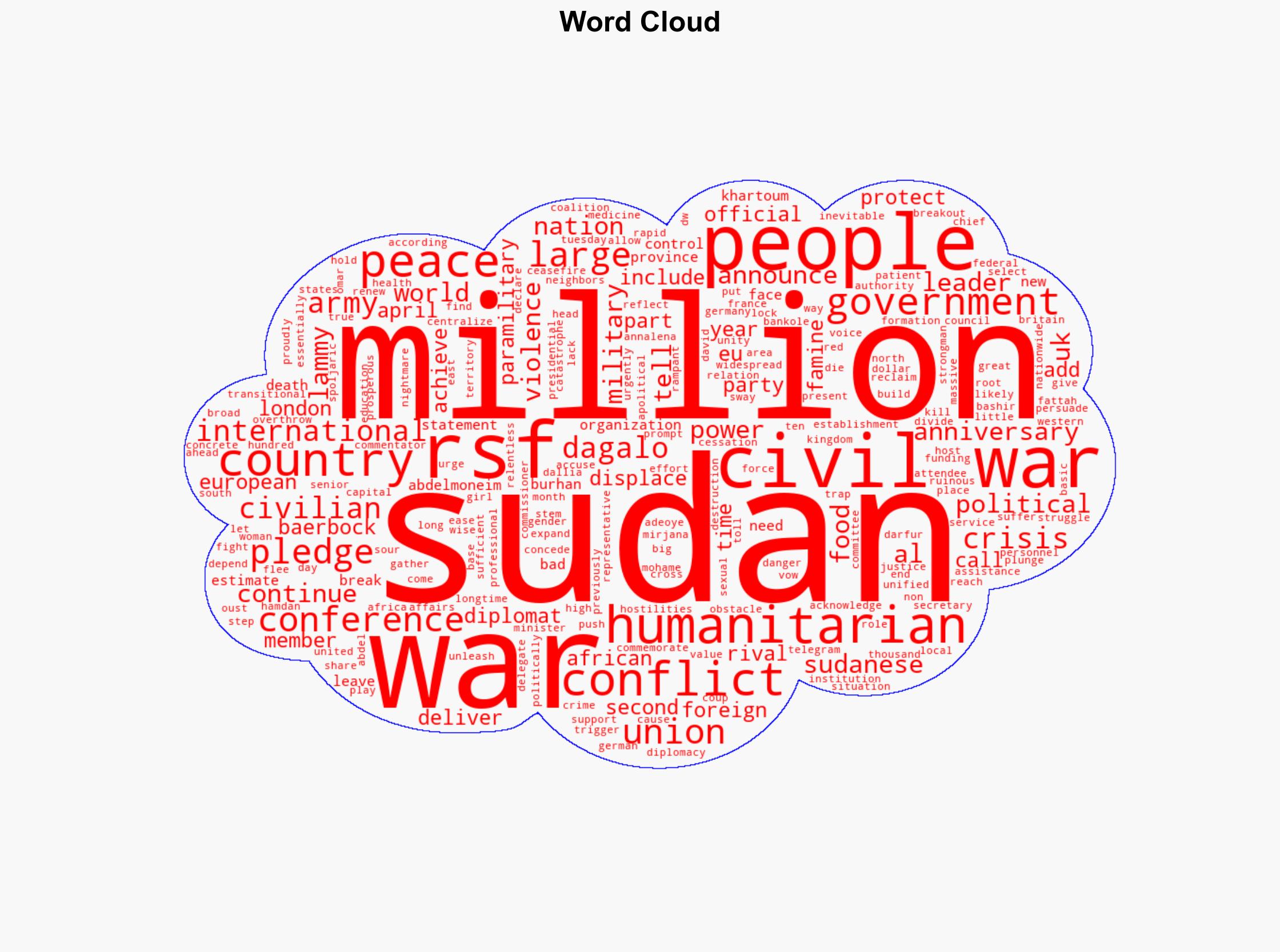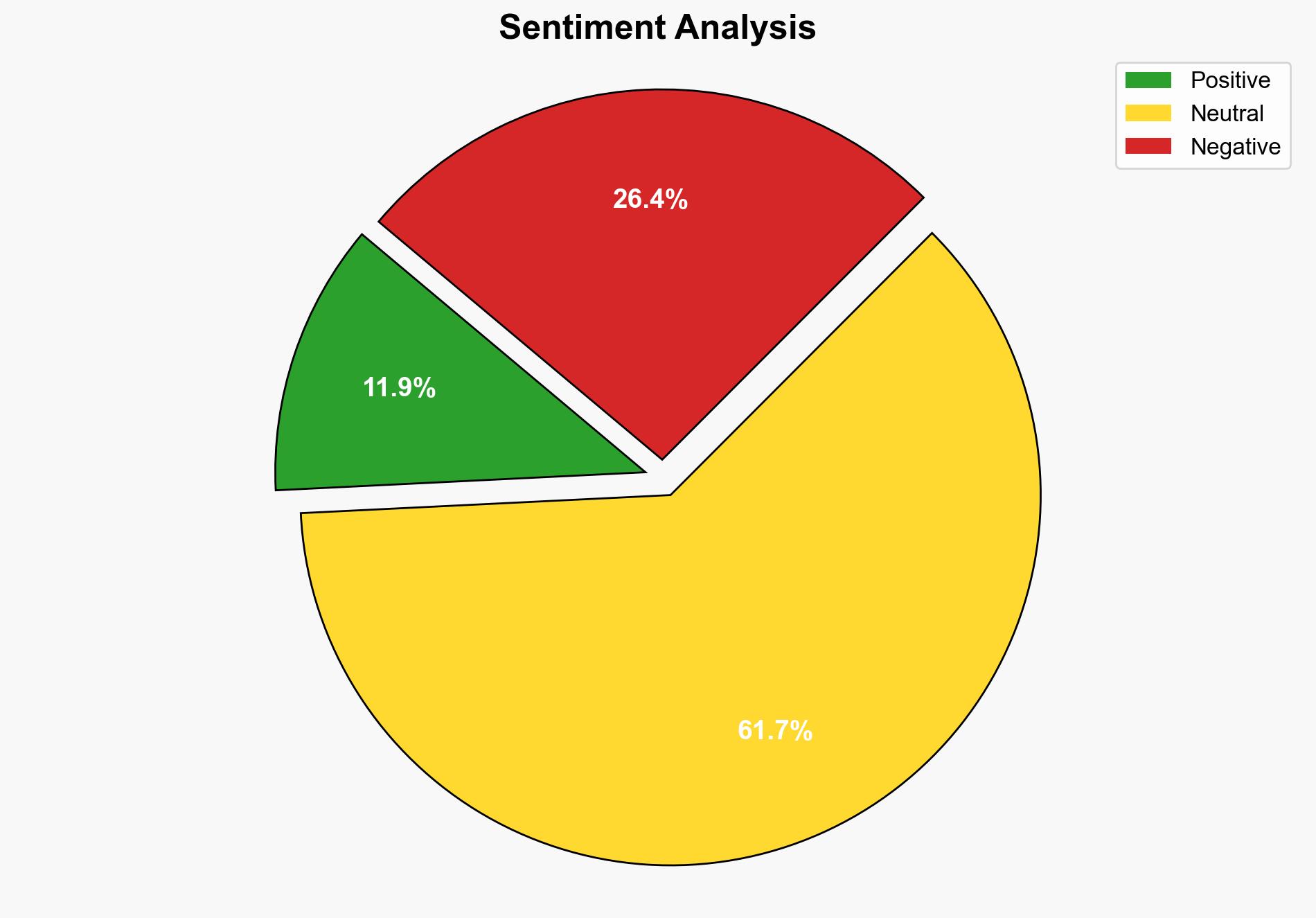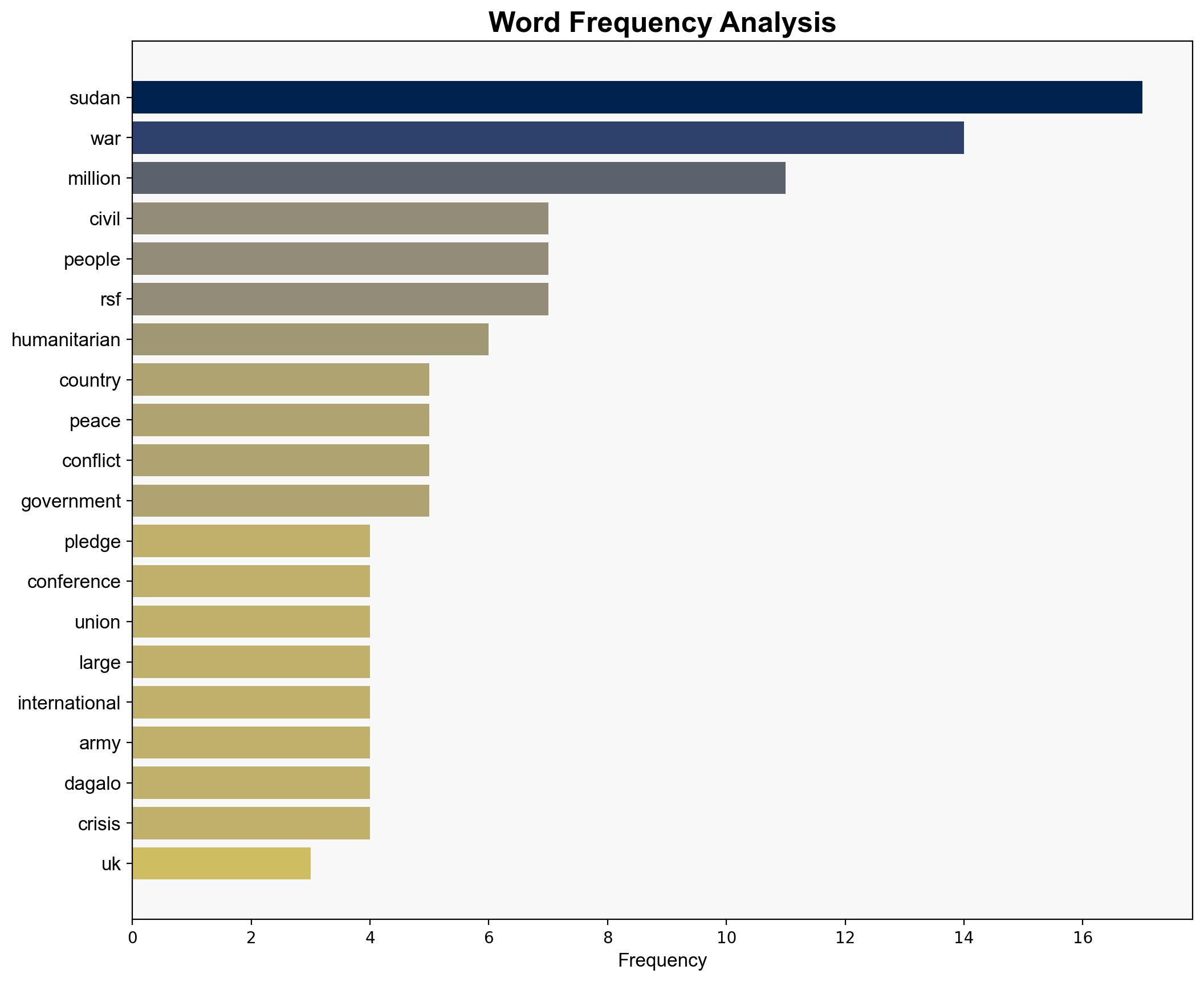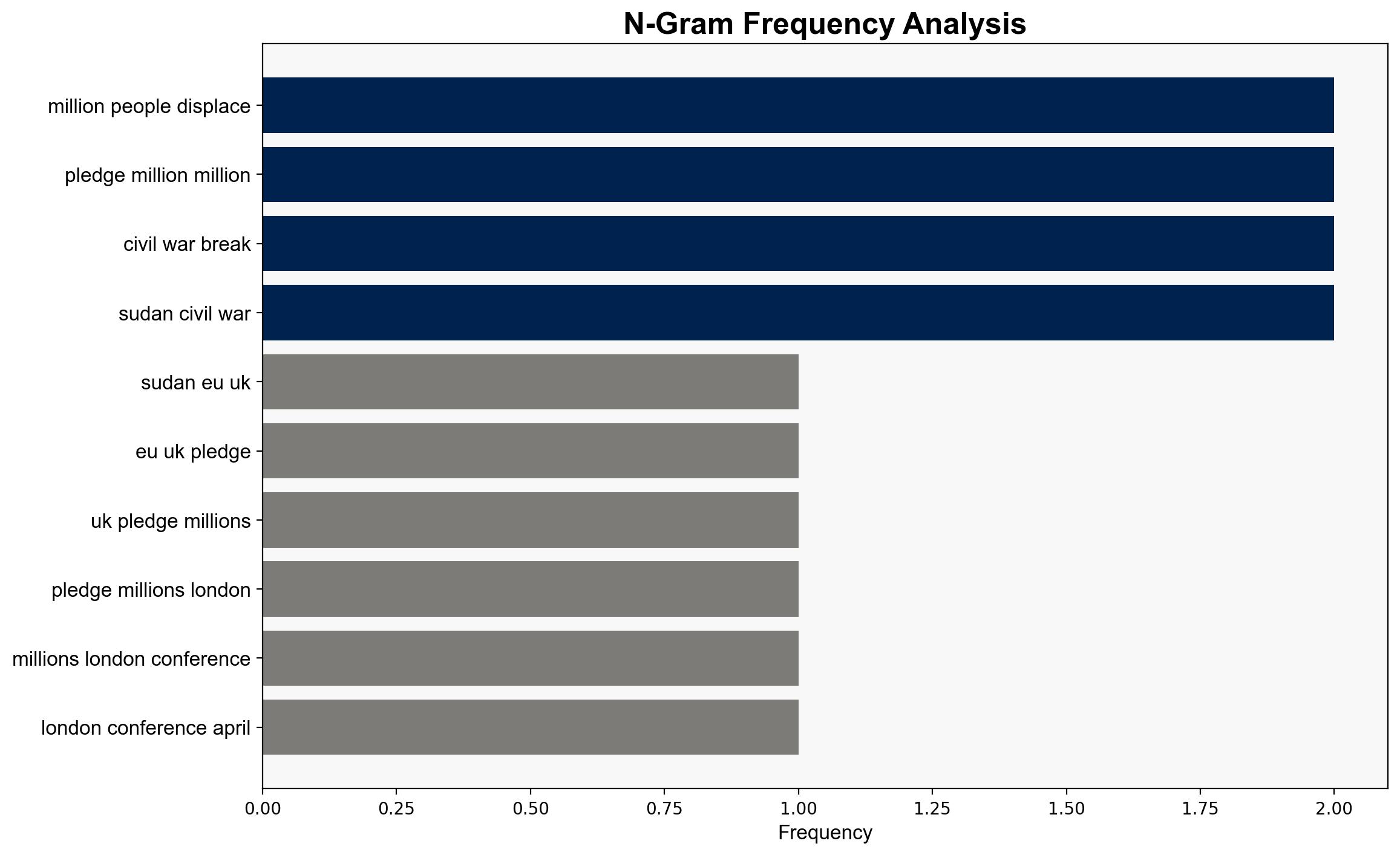Sudan EU and UK pledge millions in aid at London conference – DW (English)
Published on: 2025-04-15
Intelligence Report: Sudan EU and UK pledge millions in aid at London conference – DW (English)
1. BLUF (Bottom Line Up Front)
The European Union and the United Kingdom have pledged substantial financial aid to address the humanitarian crisis in Sudan, exacerbated by ongoing civil conflict. Despite these efforts, the absence of a political resolution remains a critical barrier to peace. The establishment of a rival government by the Rapid Support Forces (RSF) further complicates the situation, posing significant challenges to regional stability and international diplomatic efforts.
2. Detailed Analysis
The following structured analytic techniques have been applied for this analysis:
General Analysis
The London conference, attended by senior diplomats from the UK, Germany, France, the EU, and the African Union, highlighted the dire humanitarian situation in Sudan. The EU pledged €522 million, while the UK committed £120 million to provide food aid. Despite these pledges, German Foreign Minister Annalena Baerbock emphasized that humanitarian aid alone cannot resolve the conflict. UK Foreign Secretary David Lammy noted the lack of political will as a primary obstacle to peace. The RSF’s announcement of a new government underscores the fragmented political landscape and the ongoing power struggle with the Sudanese army.
3. Implications and Strategic Risks
The continuation of hostilities in Sudan poses significant risks to regional stability, potentially leading to further displacement and humanitarian crises. The formation of a rival government by the RSF could escalate tensions and undermine international diplomatic efforts. Economic interests are also at risk, as prolonged conflict may deter foreign investment and disrupt regional trade. The potential for increased war crimes allegations against both the RSF and the Sudanese army adds to the complexity of achieving a sustainable peace.
4. Recommendations and Outlook
Recommendations:
- Encourage diplomatic engagement with all parties to foster dialogue and negotiate a ceasefire.
- Support initiatives that strengthen local governance and promote political inclusivity.
- Enhance monitoring mechanisms to ensure accountability for human rights violations.
Outlook:
Best-case scenario: A negotiated ceasefire leads to a reduction in hostilities and opens pathways for political dialogue and reconciliation.
Worst-case scenario: Escalation of conflict results in further humanitarian crises and destabilizes neighboring regions.
Most likely scenario: Continued conflict with intermittent diplomatic efforts, leading to a protracted humanitarian situation.
5. Key Individuals and Entities
Significant individuals mentioned in the report include Annalena Baerbock, David Lammy, and Mohamed Hamdan Dagalo. Key entities include the European Union, United Kingdom, Rapid Support Forces (RSF), and the Sudanese army.




